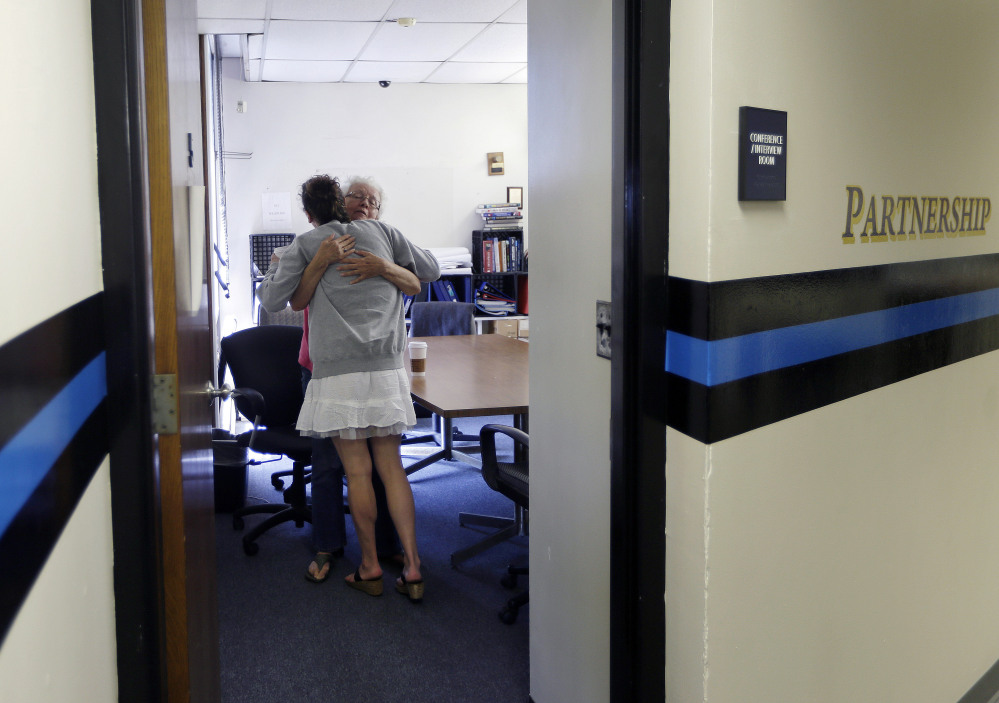Winning the war on drugs requires boots on the ground, according to Gov. LePage. And he recently made clear that he’s talking about actual combat footgear – repeating his insistence that he’ll press the Maine National Guard into service if legislators don’t immediately fund more drug agents. As an attention-getting device, such language is superb. But as a well-thought-out tactic for addressing addiction, it’s a non-starter.
The governor told interviewers this summer that he’s considering using the Guard for drug enforcement. On Nov. 5, he took his case directly to legislative budget writers: Without money for more drug agents, drug prosecutors and judges, he said, he’d “be forced to call up the National Guard” to help police or the Maine Drug Enforcement Agency.
The worst-case scenario? “Every day you’re going to see more dead people,” he said.
It’s a ringing declaration, but it overlooks the facts. National Guard personnel already work for the MDEA, but only in a data-gathering or intelligence-gathering capacity.
Their role is limited because they’re barred from enforcing criminal laws. Indeed, to ensure compliance with this statute, an anti-drug task force operated by the Guard works “very closely” with federal military lawyers, the commander of the task force recently informed MPBN.
And LePage continues to emphasize enforcement at the expense of treatment – even as police themselves are taking a different path.
The day after the governor’s State House appearance, for example, Augusta police and local treatment providers started training volunteer recovery mentors. People addicted to drugs can go to the city’s police station to get help; instead of being arrested, they’ll be matched with an “angel” and connected with treatment resources.
There’s a lot of enthusiasm for the program in Augusta. Police want to lend a hand to those truly seeking help getting clean: “You come to the PD with drugs in your pocket, I figure you’re near rock bottom, if not there already,” said Lt. Chris Massey. Volunteers say they’re motivated by having lost loved ones, or by the desire to give back to the recovery community.
But this depth of commitment won’t be enough to get the program off the ground. Before it can be launched, treatment providers need to be lined up. And that’s not easy in Maine.
The Scarborough Police Department’s 2-month-old Operation Hope has linked 39 people to long-term treatment – “in six different states, many by way of donated ‘scholarship’ beds because they lack the insurance or other funds to pay for it,” Press Herald columnist Bill Nemitz reported Sunday.
So although police and volunteers are obviously willing to go above and beyond to fight this scourge, lack of access to treatment facilities and funding is a roadblock to their efforts.
If Gov. LePage really wants to make a difference, restoring MaineCare funding and expanding eligibility for the program would help low-income Mainers pay for treatment and provide the financial support that recovery centers need to stay open. Martial rhetoric may make headlines, but it won’t be enough to secure a victory in this war.
Send questions/comments to the editors.



Success. Please wait for the page to reload. If the page does not reload within 5 seconds, please refresh the page.
Enter your email and password to access comments.
Hi, to comment on stories you must . This profile is in addition to your subscription and website login.
Already have a commenting profile? .
Invalid username/password.
Please check your email to confirm and complete your registration.
Only subscribers are eligible to post comments. Please subscribe or login first for digital access. Here’s why.
Use the form below to reset your password. When you've submitted your account email, we will send an email with a reset code.